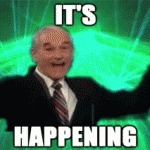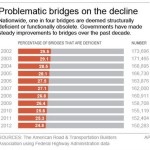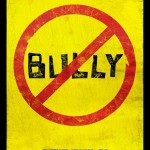American officials estimate that, from 1985 to 1992, 12,500 foreigners were trained in bomb-making, sabotage and urban guerrilla warfare in Afghan camps the CIA helped to set up.
Since the fall of the Soviet puppet government in 1992, another 2,500 are believed to have passed through the camps. They are now run by an assortment of Islamic extremists, including Osama bin Laden, the world’s most wanted terrorist.
Revolving Door Terrorism and Syria
Is Enough Finally Enough?

We told you so. We have been saying this for a while. You did not listen to us. You dismissed us. Ron Paul was right. Judge Napolitano was right. The “tinfoil hat, black helicopter conspiracy theorists” were right. The only question that begs answering now is: What will be done? Will anything really change? Is enough finally enough?
Stop Half-Assing Non-Aggression: Embrace Animal Welfare
Imagine walking down the local grocery store aisles as you likely do on a regular basis. As you stroll, you finally come across the meat section. As they lay there packaged neatly and cleanly, ready for consumption, you carefully choose the type, cut and weight of meat that will suite your needs. A plethora of readily available plant based foods stock the store shelves, ready to nourish your body but the choice is simple and benign enough. You want a steak tonight! Continue reading
But Who Will Build The Roads… That Won’t Collapse Into The Water

An Interstate bridge in Washington State collapsed without warning on Thursday May 23rd, a bridge that carried over 71,000 vehicles a day on average. The collapse is now being blamed on an over filled truck that “bumped” the steel framework above the road, subsequently causing its collapse. Taxpayers are now on the hook for 15 million dollars to repair the bridge and will not be able to use the bridge “possibly for months”. Luckily no one was seriously injured as their vehicles plunged into the water below. Continue reading
Woolwich Terrorist Attack

Today we experienced something many of us had either never experienced or forgotten. What better resembled a scene from a horrific war-zone, violent video game or a horror film was replicated on the streets of Woolwich in South-East London. For me personally, the emotion was not like something I have experienced before, having not really understood the 2005 bombings (having been 12 at the time). My first thought after seeing the video of the man brandishing his knives with his bloodied hands was, ‘Now I know how Americans feel about 9/11’. Of course, this is a huge understatement of the tragedy of 9/11 and I realise the two events are not comparable in terms of sheer quantity of violence and destruction wrought.
What is comparable however, is the feeling and reaction the attack has provoked. Initially, I find that there is a sense of disbelief, confusion, and desperation. Why here? Why us? Why has this place we call home been turned into a war-zone? How has this abhorrent horror come to visit our streets? Secondly, often because people fail to answer these questions, the same voices turn to anger, hatred and revenge. Today I felt the strength of the arguments that play on these emotions. Today I thought I could feel the power of the voices that want blood paid for blood lost. We all had the slightest insight of what it must have been like to be George Bush on 9/12/2001. And it scared me.

What scared me is how long it took me to remember that murder, even as revenge, is never justified. What scared me is how long it took me to remember that to sacrifice freedom for security is to lose both. What scared me most is that for a while I forgot that human beings are good creatures. For a while, I lost my principles along with my faith in humanity. This is what horror does to people.
As readers might know from my previous articles, I approach libertarianism not just from a political or economic point of view, but also from a spiritual background. Anger incites anger, hate incites hate, and violence incites violence. Gandhi could not have put it better when he said, ‘An eye for an eye will make the whole world blind’. I believe that if you choose to hate someone, you are inciting more hatred in the world; you spread the hate to more people. In society, almost everyone plays into this game. The worst part is the game never ends; once you enter the game of hatred it only causes more and more hatred. The only way to stop this vicious disease is to refuse to enter into the game. There are few people that can live in a world where hatred and anger are rife, and turn away from them. However, I believe if anyone can, its libertarians.
Libertarians understand that the best, most favourable condition for humans to live in is freedom. As such, we recognize that we should not interfere with one another; we should not violate one’s right to be left alone. We should apply the same principles of non-interference that we have in economics and politics, to morality. I will attempt to show that if libertarians are consistent with our ideology, we should be the first to reject hate, anger and all violence. We do not think that we can correct the economy, or a business, by interfering with its practices. Rather, we think the free market naturally separates the good from the bad; through the selective discrimination of the free market we are left with only good, healthy businesses and a vibrant economy. The same principle applies in foreign policy; rather than interfering with a country (by applying sanctions and military intervention) we believe that it is more effective to show another country what the benefits of freedom and liberty are. By leading by example, we think we can improve the happiness and prosperity of the world as people embrace the ideology of liberty. These same principles applied to morality teach us that we cannot expect to correct character by violent intervention. We have to have faith in humanity and believe that if we apply a free market to morality, society would weed out the bad morals. We have to lead by example, by practicing rejecting the negative emotions of hatred and anger. I think this will be come to be shown as the next frontier for the ideology of libertarianism; the embrace of a spiritual pacifism, the acceptance of non-violence and the rejection of negative emotion.
I want to demonstrate the ‘hate-inciting-hate’ effect that I am talking about. Libertarians often warn about blowback; the unintended consequences of military campaigns. We recognize that the laws of cause and effect apply to war as much as they do to anything else. I believe today’s ruthless attack is just another example of this effect. Today’s event appears to have been motivated by radical Islam, with preaches that Muslims should attack Westerners since Westerners occupy their land in the Middle East. The actual facts of the issue (who’s land it is for example) are irrelevant to my point, it is the perception I am focused on. Westerners occupy or patrol much of the Middle East because of 9/11. 9/11 was, as Bin Laden said repeatedly, done because the West had been meddling in the affairs of Muslim Middle Eastern states for about 50 years, ever since the creation of Israel, the overthrow of the democracy in Iran, the installation of the Shah, and the numerous dictators supported across the region. The creation of Israel and the West’s desire to control came for the most part directly from the impact of the Second World War. This in turn was caused, at least in part, from the aftermath of the First World War. None of these actions justify the next, but they are important in understanding the reasons they happened. If we ignore the reasons, we will never understand and we can never hope of stopping them. The violence goes back and back; and it will never end unless we have the courage to reject it. I suggest this be the libertarian approach, and indeed the worlds approach, to the kind of tragic events we have seen today.

Flowers left at the scene
RIP Woolwich Soldier x
Should we be glad that at least the UK would never react in the same way as the US government did in the aftermath of the Boston Bombings
Should Christians be Libertarians? Reading Romans 13 and Norman Horn
Since converting to Anglicanism about 3 years ago I wondered if my faith would clash with my philosophical beliefs in the secular sense and that if I could ever be a libertarian and a Christian. Andrew Napolitano, one of our favourite libertarians across the pond is a devout Catholic and he often talks about how Secularists and Christians can meet philosophically at a point of ‘true north’. Firstly he takes the secular argument for liberty: I own my own body, I own the property which I acquire from the fruits of my labour or the creation of my brain. Then his religious perspective: I was created by an all loving, all powerful God, who has counted every hair on my head and since he is perfectly free, then I am perfectly free. I find that nearly all libertarians use the secular arguments, even those who believe in a diety. There are, I think three reasons for this. Firstly, libertarians would like to find some common ground with other libertarians in an argument process. Secondly it would give greater credibility to a libertarian if he/she were debating a secular statist and lastly, perhaps most libertarians cannot find a strong enough case in the christian belief of freedom. I would like to examine a controversial text which seems hostile to the coalition of christianity and liberty. I will be paraphrasing the work of Norman Horn.
Statists who may be well-read in the holy book like to fire the opening shot against christian libertarians with Romans 13. The text reads:
Let everyone be subject to the governing authorities, for there is no authority except that which God has established. The authorities that exist have been established by God. 2 Consequently, whoever rebels against the authority is rebelling against what God has instituted, and those who do so will bring judgment on themselves. 3 For rulers hold no terror for those who do right, but for those who do wrong. Do you want to be free from fear of the one in authority? Then do what is right and you will be commended. 4 For the one in authority is God’s servant for your good. But if you do wrong, be afraid, for rulers do not bear the sword for no reason. They are God’s servants, agents of wrath to bring punishment on the wrongdoer. 5 Therefore, it is necessary to submit to the authorities, not only because of possible punishment but also as a matter of conscience.
6 This is also why you pay taxes, for the authorities are God’s servants, who give their full time to governing. 7 Give to everyone what you owe them: if you owe taxes, pay taxes; if revenue, then revenue; if respect, then respect; if honour, then honour.
Though indeed it would appear that on the face of it, the state is positively viewed in this scripture and one could even interpret that the state was ordained by God himself as he ordained the church and the prophets. However this is fallacious to read the text in this way because one would fail to understand the historical context in which it is placed. Verse 1 says that state authorities are instituted by God. Paul’s primary message for Christians, however, is not that states are specially instituted in the same way as the family and church, but rather that the state is not operating outside of the plans of God. In this sense, the state is divinely instituted in the same way that Satan is divinely instituted. Oddly enough most scripture suggests that the state is tied with satan himself as this is the vessel in which the anti-christ will ride to fool the earth.
Verses 2-4 say that if you disobey the state, then you shall have wrath and if you please the sate then you will be commended. In many cases, what the state believes good and evil may be very much opposed to what God defines as good and evil. But what Paul is telling the believers in Rome is that if they do something that the Roman government defines as evil then they will likely be punished for it. One cannot apply this argument in Romans to all cultures and at all times. Paul knew full well the power of Nero and the potential harm he could cause to Christians in Rome – he calls it “the sword” – and he does not want believers to be persecuted for anything other than believing in Christ and what he stands for.
Verses 5-7 This verse cannot be taken as it appears on the face of it. In fact Norman Horn describes it as “One cannot use this verse in an absolutist sense to say that Christians can never participate in removing any authority, such as in the American Revolution. Paul also encourages Christians to “overcome evil with good” as understood in Romans 12:21 (this includes evil authority), and to work to be free if at all possible (1 Corinthians 7:20-23)”. There is a clear implication that Paul is aware of his other writings and that evil may well exist in authority afterall authority is not outside the realm of God.
What if Paul had instead written instead of ‘authorities’ and ‘rulers’ with the names of the kings and emperors of his time, particlarly Nero and Herod? Norman Horn uses a brilliant illustration to echo this point and re-writes the text with these names instead:
“1 Let every person be subject to Nero and Herod; for there is no authority except from God, and Nero and Herod have been instituted by God. 2 Therefore whoever resists Nero and Herod resists what God has appointed, and those who resist will incur judgment. 3 For Nero and Herod are not a terror to good conduct, but to bad. Do you wish to have no fear of Nero and Herod? Then do what is good, and you will receive Nero and Herod’s approval; 4 for Nero and Herod are God’s servants for your good. But if you do what is wrong, you should be afraid, for the Nero and Herod do not bear the sword in vain! Nero and Herod are the servants of God to execute wrath on the wrongdoer. 5 Therefore one must be subject to Nero and Herod, not only because of wrath but also because of conscience. 6 For the same reason you also pay taxes, for Nero and Herod are God’s servants, busy with this very thing. 7 Pay to Nero and Herod what is due them – taxes to whom taxes are due, revenue to whom revenue is due, respect to whom respect is due, honor to whom honor is due.
Had Paul written this, the church would never have accepted such works and to think of Nero and Herod as “God’s servants” is quite an abomination those early christians. How would christians read the text if placed in this manner? How can we resolve the problem of knowing that Nero killed thousands of innocent people, namely Christians, when the passage clearly says that government rewards and commends those who do good? Cleary the case for using the ‘submit to authority because God has exalted it’ is not founded. The scripture is far more abstract for the statist to achieve some divine mandate for authority. Christians do indeed have a moral case for being sceptical of the state and there is certainly no fear in being a Christian and a libertarian. Earthly powers are not the be all end all and if, we as Christians want to build the kingdom here on earth, let us dismantle the old one and set the meek and humble free.
Keep up the good fight!
The Bullying Problem

Is there a such thing as “bullied to death”? Amanda Todd has been insulted numerous times, had violence inflicted upon her, had her reputation destroyed, and killed herself because she could not take it any longer. It is no doubt a serious and tragic problem.
Parents and teachers of adolescents who have committed suicide or inflicted self-harm as their way of dealing with bullying would definitely agree that something should be done. Unfortunately, the easy and attractive solution to the problem seems to be getting government to pass a law that would prosecute minors for saying offensive things directed towards people they know.
Here’s the problem with that solution; it doesn’t really stop bullying from happening. People will still bully and kids will get hurt. There are numerous mechanisms for kids to call each other mean things anonymously through other portals where they can avoid detection. What is going to happent then? Trace every single IP address to each student who says a bad word online? Continue reading
The Profane Right of Officious Non-Entities

During the 17th and 18th centuries, many, if not most, people subscribed to the idea of the Divine Right of Kings. It should not surprise us that they did so. Continue reading
